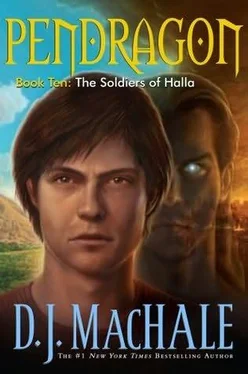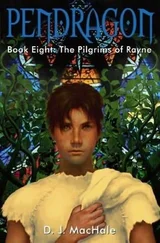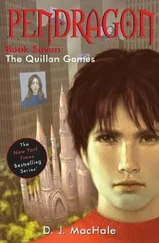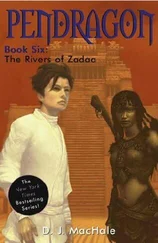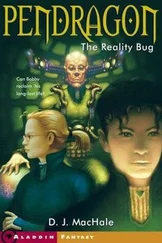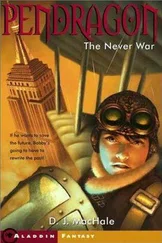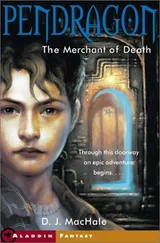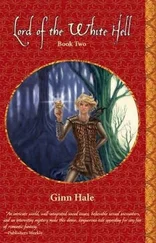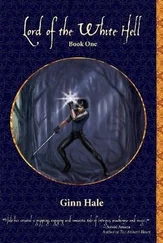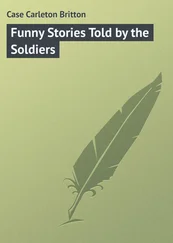D. MacHale - The Soldiers of Halla
Здесь есть возможность читать онлайн «D. MacHale - The Soldiers of Halla» весь текст электронной книги совершенно бесплатно (целиком полную версию без сокращений). В некоторых случаях можно слушать аудио, скачать через торрент в формате fb2 и присутствует краткое содержание. Жанр: Фантастика и фэнтези, на английском языке. Описание произведения, (предисловие) а так же отзывы посетителей доступны на портале библиотеки ЛибКат.
- Название:The Soldiers of Halla
- Автор:
- Жанр:
- Год:неизвестен
- ISBN:нет данных
- Рейтинг книги:4 / 5. Голосов: 1
-
Избранное:Добавить в избранное
- Отзывы:
-
Ваша оценка:
- 80
- 1
- 2
- 3
- 4
- 5
The Soldiers of Halla: краткое содержание, описание и аннотация
Предлагаем к чтению аннотацию, описание, краткое содержание или предисловие (зависит от того, что написал сам автор книги «The Soldiers of Halla»). Если вы не нашли необходимую информацию о книге — напишите в комментариях, мы постараемся отыскать её.
The Soldiers of Halla — читать онлайн бесплатно полную книгу (весь текст) целиком
Ниже представлен текст книги, разбитый по страницам. Система сохранения места последней прочитанной страницы, позволяет с удобством читать онлайн бесплатно книгу «The Soldiers of Halla», без необходимости каждый раз заново искать на чём Вы остановились. Поставьте закладку, и сможете в любой момент перейти на страницу, на которой закончили чтение.
Интервал:
Закладка:
The city was still an oasis, but the look had changed.
There were still palm trees and flowers everywhere, but I didn’t see any open troughs. I figured maybe they had been buried under the paved streets. Yes, the streets were now paved, but they didn’t look like any street surface I’d seen. They sparkled with color. To me it looked as if the roadbeds were made from billions of tiny bits of crushed quartz. The sun hit the millions of facets in different ways, making the streets appear to be paved with multicolored jewels. The pyramids were gone. At least, the pyramids I remembered. These new silver structures had a sharp, modern feel, as opposed to the crudely carved stone of the old Xhaxhu. The lines of these new buildings were clean and straight, with no intricate carvings at all. The Batu statues were gone. In their place were modernistic sculptures that looked like, well, I don’t really know what they looked like because they were just kind of chunky pieces of metal.
This was not a modern city, but it was definitely moving in that direction. The place felt kind of, I don’t know, cold. Which is odd to say because it had to be a hundred degrees in the shade.
I’ve described the physical city and how strange it was to see the changes, but there was something else about this new Xhaxhu that was much more disturbing than any new architecture. The old Xhaxhu was populated by the dark-skinned Batu tribe. Now everywhere I looked, I saw only light-skinned Rokador. It was like one whole population had moved out, and another had moved in. That’s not to say that there weren’t any Batu. There were. But I saw what Loor meant when she said they had become slaves. Where the Rokador were out enjoying the day or traveling along the roads or doing whatever, the Batu were working. I saw a few guys polishing the silver buildings. Others trimmed the flowers. There were no cars, so the Rokador moved along the streets in two-person rickshaws that were being pulled by sweating Batu tribesmen. As one passed I actually saw the Rokador lean forward and whack the Batu who was pulling him with a long stick to make him go faster. The Batu weren’t just slaves, they were being treated like animals. I take that back-most right-thinking people wouldn’t whack an animal with a stick, or make it labor in the heat of the day. I didn’t see a single Batu who wasn’t working. Hard.
There was one more change in Xhaxhu that told me how wrong things had become. It was probably the most dramatic of all. On top of each building, a flag waved. A red flag. With a Ravinian star.
I glanced to Loor. She was taking in the scene with dead eyes. She had gone beyond anger.
“Do you know what happened?” I asked.
“When the Rokador left the underground tunnels, they used their knowledge like a weapon. The Batu relied heavily on the Rokador to provide expertise in growing food and purifying water and giving medical care. Once they began living on the surface, that knowledge became power, and they used it to control the Batu.”
I asked, “Didn’t the Rokador still need the Batu for protection against enemy tribes?”
“No” was her quick reply. “They found another means of protection. The Rokador brought in an army from another part of the territory. They proved to be superior warriors to the Batu and wasted no time in gaining control over them. I did not know that such an army existed on Zadaa, but it did, and the Rokador brought them here to vanquish the Batu and take their place.”
I saw a small group of these warriors marching together down the far side of the wide street. There were six of them, all marching in step. One look told me the truth.
“Dados,” I said. “They didn’t come from Zadaa. The Ravinians brought them here, just like they did on other territories.”
“Whatever they are, they are demons,” Loor said through clenched teeth. “They have destroyed my people.”
“How did you find out about all this?” Spader asked. “Come with me,” Loor answered.
She walked quickly, keeping her head down so nobody would recognize her as a Batu. She led us on a winding path through the transformed city. We reached the far wall and continued outside again to the vast farmland that fed the people of Xhaxhu. I wasn’t surprised to find that all the people laboring under the hot sun were Batu. There were men and women and even kids. Dozens of them. They all worked under the watchful eyes of several dado guards. It made me feel horrible to see how this once-proud tribe found themselves working on their knees to feed the very people they once protected. I could only imagine how it made Loor feel.
“I may be a spirit of Solara,” she said, her voice trembling. “But I am still a Batu. This is not right.”
The life she had known had been turned upside down. You could say that about all of the Travelers, but it must have been especially hard for her, knowing what a strong, proud person she was. I wished I could say or do something to make her feel better, but I had nothing to offer.
“What d’ya want us to see out here?” Spader asked.
Loor led us to several large carts that were piled high with what looked like potatoes. That’s what the Batu were digging out of the dirt. Potatoes.
“Stay here, I will return,” she said, and walked away from us.
“You’re right, mate,” Spader said to me wistfully. “Every territory has changed. We’ve lost every one of ‘em.”
“It’s not about the territories anymore,” I corrected. “It’s about Halla.”
Spader nodded thoughtfully, then added, “Do we have any chance of turning the tide?”
“I don’t know” was my honest answer. “But it’s not like we can stop trying.”
“No,” he agreed. “We’re in this till the end. Funny thing though.”
“What’s that?”
“How are we going to know when the end comes?”
I was about to give him a quick answer, but stopped myself. The truth was, I didn’t know. One way or the other. If Saint Dane found the exiles and wiped them out, would we all just stop existing? Would we even know that we had lost? And what if we won? What did that actually mean? Would things suddenly change? Would a gun go off and confetti fly, and we’d all pat one another on the back in congratulations? Probably not. Spader’s simple question raised so many others. I decided not to deal with predictions. There was enough to worry about. One thing at a time. But Spader’s words haunted me.
How would we know?
“Hello, Pendragon,” came a familiar voice.
I turned to see that Loor had returned with one of the Batu workers from the farm. It was a woman, though that wasn’t obvious, because she was dressed in rags and was covered in dust from head to toe. She was also drenched in sweat from her labors.
“It has been a very long time,” the woman said. She sounded tired and beaten.
“Do I know you?” I asked, digging through my memory to try and remember who she might be.
“I have grown since you saw me last. I used to be a warrior. Now I dig in the dirt. But I am still an acolyte to Loor.”
“Saangi!” I shouted, and threw my arms around her. I did it without thinking. If I had thought for two seconds, I probably wouldn’t have hugged her. Saangi wasn’t the huggy type. She was a tough little girl who wanted nothing more than to follow in Loor’s footsteps. She didn’t like me much either. She thought I was a wimp. I’d gained some respect after I went through warrior training with Loor and Alder, but I still had the feeling that she thought I was a step above useless.
I was surprised to find that Saangi hugged back. Yet another example of how much things had changed.
“What has happened?” she whispered in my ear, her voice quivering.
I felt a drop of her sweat on my cheek. Or maybe it was a tear. My heart ached. Saangi was beaten. She was a slave. Knowing the kind of strong girl she had once been made it all the more gut wrenching. She didn’t let go of me. Instead, she cried. I felt her body shudder with emotion. All I could do was hug her closer.
Читать дальшеИнтервал:
Закладка:
Похожие книги на «The Soldiers of Halla»
Представляем Вашему вниманию похожие книги на «The Soldiers of Halla» списком для выбора. Мы отобрали схожую по названию и смыслу литературу в надежде предоставить читателям больше вариантов отыскать новые, интересные, ещё непрочитанные произведения.
Обсуждение, отзывы о книге «The Soldiers of Halla» и просто собственные мнения читателей. Оставьте ваши комментарии, напишите, что Вы думаете о произведении, его смысле или главных героях. Укажите что конкретно понравилось, а что нет, и почему Вы так считаете.
